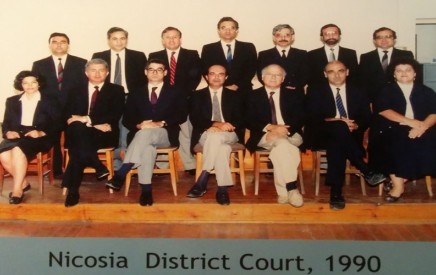The different options available to the mortgaged lender, after a failed attempt of foreclosing the mortgaged property

According to the ʺThe Immovable Property (Transfer and Mortgage) Law of 1965 (9/1965), part VIA, the mortgaged lender has the right to set an auction for mortgaged property, only if all the requisite by the Law requirements are fulfilled and the process which the Law implies is followed exactly as described.
On the basis of Article 44E of Law 9/1965, the first attempt for the sale of the mortgaged property can only be carried out via a foreclosure. During the foreclosure procedure, the Reserved Sale Value of the mortgaged property is set at a price that can never be agreed lower than eighty per cent (80%) of the Open Market Value (OMV). (The Open Market Value is set through a valuation of the mortgaged property, and the process of the valuation is discussed in detail in Article 44D of the abovementioned Law). Furthermore, it is important to note that the requirement that the Reserved Sale price can not be lower than 80% of the OMV is valid for a minimum period of three months after the first attempt for the foreclosure.
In case that the first attempt for foreclosure is not successful and the mortgaged property is not sold then the Law offers the mortgagor, several other options and procedures. Specifically, Articles 44E, 44H and 44IA the following are offered as alternative options and the mortgagor is free to choose whichever he considers to be in his interests:
A SECOND FORECLOSURE PROCEEDURE:
The most commonly chosen option is that of a second foreclosure. When choosing to proceed with a foreclosure, the procedure outlined in Article 44Z of the Law must be strictly followed.
Once the three month period -post the first foreclosure- passes, then the mortgaged property might be sold at a lower amount but never at a price lower than 50% of its Open Market Value. Moreover, six months after the first foreclosure the mortgaged property can be sold without the restriction of a reserved sale value. In fact this part of the Law is valid in all of the sale options, not just the one of the foreclosure.
DIRECT SALE:
The mortgaged Lender enjoys the option of a direct sale, according to Article 44H of Law 9/1965.
Article 44H(3) specifically provides that:
«(3) In case that the first foreclosure procedure fails and the mortgaged lender wishes to proceed with a direct sale of the mortgaged property, then he must comply with the following requirements:
- He must promote the sale of the property through advertisement, which should also include accessible, electronic means of advertisement, internet, at least one website, and its publishment to at least two daily newspapers within the Republic of Cyprus.
- All the offers must be placed in writing or electronically to the mortgaged lender prior to the date of sale which is set on the advertisement. All the offers should be kept by the lender for at least one (1) year after the sale of the mortgaged property.
- The property is sold to the offeree with the higher offer.
- The offeree with the highest offer is obliged to pay at least 20% of the sale price. The amount is payed immediately after the acceptance of the offer.
- The rest of the amount is payed by the buyer within twenty days since the day of the acceptance of his offer.
- If the amount described in section (e) is not deposited within the time limit set by the Law, the initial payment of the buyer will be forfeited by the lender and the sale will be cancelled.
- The mortgaged lender credits the forfeited payment to the sale expenses and to the final amount owed by the mortgaged debtor.
CHOOSING A SPECIFIC BUYER:
If six months passed since the first attempt of foreclosure and the property remains unsold, then Article 44IA of the Law provides that the mortgaged lender himself might purchase the mortgaged property at the last valuated Open Market Value, or by ordering a completely new valuation.
INTERRUPTION OF SALE:
On the basis of Article 44E (4) the mortgaged lender might opt for the interruption of the whole process of sale in case he/she considers that the sale price is neither fair nor reasonable.








